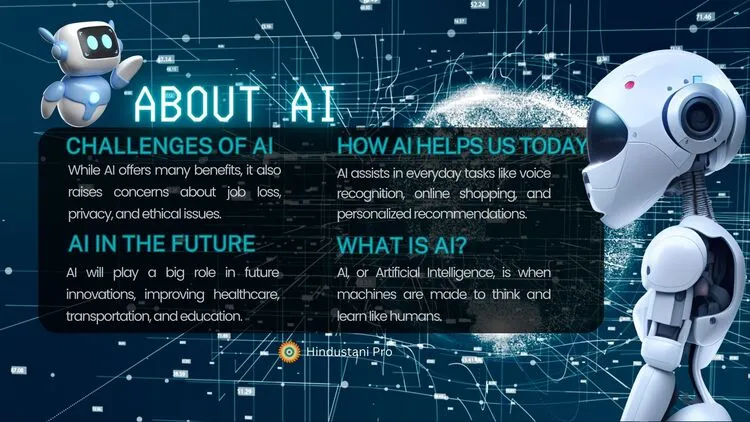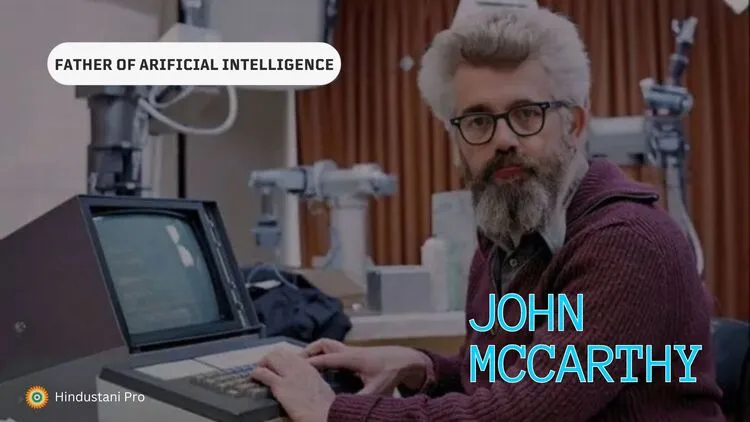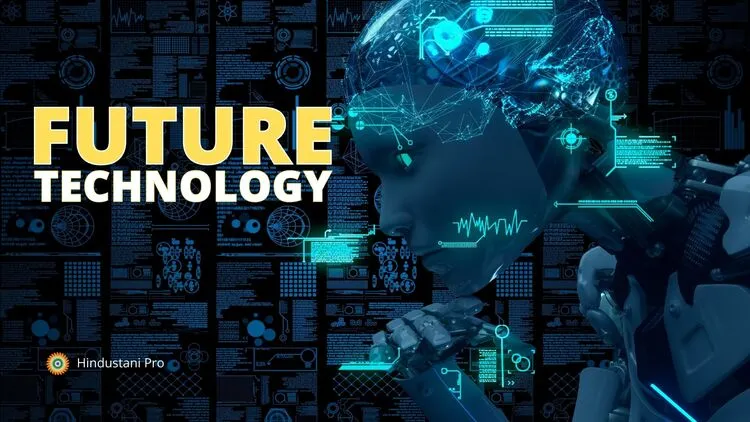Father of Artificial Intelligence: Who is the Father of Artificial Intelligence?
Artificial Intelligence, or AI, is the technology that allows machines to think, learn, and make decisions like humans. It’s used in many areas of our daily lives, from voice assistants like Siri and Alexa to smart recommendations on Netflix and YouTube. AI helps make things faster, easier, and more efficient, and its impact continues to grow as technology advances. As AI becomes more common, it is changing the way we live, work, and solve problems, thanks to the work of John McCarthy, the Father of Artificial Intelligence.
In this article we talk about, who is the Father of Artificial Intelligence? We explain how he came up with the term Artificial Intelligence in 1956, which started the field of AI. The article also highlights his contributions to making machines that can think and learn like humans, and how his work has shaped the AI technology we use today.
What is AI?

AI, or Artificial Intelligence, is when computers and machines are made to think and learn like humans. They can do tasks like recognizing voices, understanding pictures, and making decisions. AI helps make our lives easier by doing things faster and more efficiently.
The Beginnings of AI
AI, or Artificial Intelligence, began in the 1950s when scientists started to figure out how to make machines think like people. This was an exciting time full of new ideas, where researchers tried to create computers that could solve problems, play games, and understand words. The early work on AI helped create the smart technologies we use today.
Where did the term “Artificial Intelligence” come from?
The term “Artificial Intelligence” was created by a scientist named John McCarthy in 1956.John McCarthy known as the Father of Artificial Intelligence. He used it to describe the idea of making machines that could think and learn like humans. This name became the starting point for the whole field of AI.
The Father of Artificial Intelligence

John McCarthy is often called the “father of artificial intelligence.” He was a very smart computer scientist who came up with the name “artificial intelligence.”
Who was the Father of AI?
John McCarthy was the Father of Artificial Intelligence, played a big role in creating AI. He was born in 1927, he came up with the name “artificial intelligence” and worked on making computer programs that could think and learn like people. His ideas made computers smarter, and his work is still important today.
Who was John McCarthy?
John McCarthy, who came up with the name “artificial intelligence,” is often called the father of Artificial Intelligence. He was a very smart computer scientist, and his work was very important in developing AI and making it what it is today.
Knowing the Father of Artificial Intelligence: John McCarthy
To truly appreciate the impact of John McCarthy, we need to delve deeper into his life and work. McCarthy was not just a theorist; he was a hands on researcher who developed programming languages like Lisp, which became instrumental in AI development. His vision and leadership were essential in establishing AI as a legitimate field of study.
John McCarthy’s Major Achievements in AI
To really understand how important John McCarthy was, we need to look at his life and work. He wasn’t just someone who thought about AI; he actually created tools, like the programming language Lisp, that helped build AI. His ideas and guidance were key in making AI a real and serious area of study.
The timeline of AI
Several key milestones and breakthroughs have marked the journey of AI. Let’s explore some of the critical periods in AI’s evolution.
Early Contributions and Milestones of the 50’s
In the 1950s, AI started as a real field of study. John McCarthy and other scientists held the Dartmouth Conference in 1956, which is seen as the beginning of AI research. This meeting brought together top scientists to talk about what AI could do.
The Rise of Machine Learning 80’s-90’s
In the 1980s and 1990s, people became very interested in AI again because of new progress in machine learning. Machine learning is a part of AI where computers are designed to learn from data by themselves, without needing special instructions.
The Big Data Revolution 00’s
In the 21st century, a lot of information became available, which we call “big data.” This huge amount of data helped AI (artificial intelligence) grow because it allowed machine learning programs to learn from all this data and become very accurate.
The AI of Today
Today, AI is everywhere in our lives. We use it in things like virtual assistants and self-driving cars. AI is changing how we do things and how we interact with the world.
Major Inventions of Artificial Intelligence
AI has created many new inventions that have changed our world. Let’s look at some of the coolest examples:
- Virtual Agents
- From chatbots to virtual assistants, AI-powered virtual agents have become an integral part of our lives, providing information, completing tasks, and offering companionship.
- Natural Language Generation
- AI has become really good at creating text that sounds like a person wrote it. This helps with things like writing articles automatically, translating languages, and telling smart stories.
- Machine Learning Platforms
- New, easy to use machine learning tools have made it possible for people and groups, even those who don’t know much about coding, to create AI models.
- Cyber Defense
- AI helps protect our computers and online information. AI systems can find and handle cyber threats faster and better than old methods.
The Future of AI

The future of AI looks very exciting. As technology gets better, we’ll see even smarter and more advanced AI. But, it’s important to be careful and make sure we use AI in a good and responsible way.
How to talk to JIO customer care executive? Visit Hindustani Pro
Other Leaders In The Field of AI
John McCarthy is a big name in AI, but we should also remember other people who helped a lot. Let’s talk about some of these important people.
- Noam Chomsky
- Noam Chomsky is famous for his work on language. His ideas about how we use language have greatly helped AI systems that understand and work with human language.
- Geoffrey Hinton
- Often referred to as the “Godfather of Deep Learning,” Geoffrey Hinton’s research on neural networks has revolutionized AI, leading to breakthroughs in image recognition, speech recognition, and natural language processing.
- Marvin Minsky
- A co-founder of the MIT Artificial Intelligence Laboratory, Marvin Minsky made significant contributions to AI research, focusing on areas like machine learning, robotics, and cognitive science.
To read more informative blogs visit: Hidustani Pro
Bottom Line
In conclusion, John McCarthy, the father of Artificial Intelligence, started a field that has grown and changed our world. AI now helps us in many ways, from virtual assistants to self-driving cars. As technology improves, AI will keep getting better and changing how we live. It’s important to use AI carefully and think about its effects on our lives.






